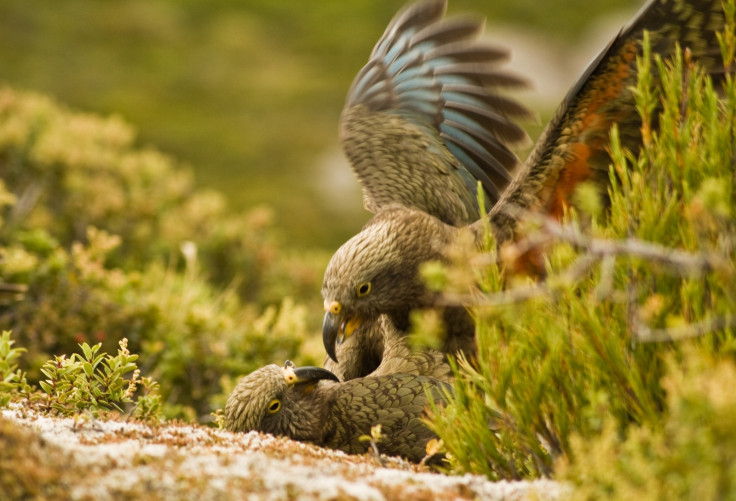New Zealand parrots break out into contagious laughter when they play together
Kea parrots produce a 'play call' which leads other parrots to become playful.
For the New Zealand kea parrot, joy is contagious. This unusual bird can produce a "play call" which puts its fellow parrots in a gleeful, playful mood.
The phenomenon of positive emotional contagions is often observed in humans. These are outwardly emotive actions that spread from one individual to another such as laughter.
Whether this also happens in animals is less obvious. Scientists know that play vocalisation in some species can act as a form of emotional contagion.
For instance, deaf rats are less likely to play than other rats, possibly because they cannot hear play calls. Similar findings have also been made with chimpanzees.
In a study now published in the journal Current Biology, scientists have shown for the first time "emotionally contagious" vocalisation are not unique to mammals. They have identified the phenomenon in kea parrots.
Recording play calls
The team had observed kea parrots interact with each other and listened to their full vocal repertoire. Identifying their specific play call, they were able to say that it was connected with the the birds'play behaviours. The scientists hypothesised that these play calls could act like laughter in humans, spreading from one bird to the next and eliciting play.
They conducted an experiment, which involved playing back recorded play vocalisation to kea parrots during five minutes.
To compare the birds' different reactions to the calls, they also played other stimuli – two non-play kea calls, a call of the South Island robin and a standardised tone.

They found that when kea parrots heard the play calls, it led them to start playing, and to play for longer, in comparison to when they heard the other sounds. The play vocalisation spread playful behaviours among the birds – both juvenile and mature parrots – just as infectious laughter would spread among humans.
"Upon hearing the play call, many birds did not join in play that was already underway, but instead started playing with other non-playing birds, or in the case of solitary play, with an object or by performing aerial acrobatics," the researchers point out. "These instances suggest that kea weren't 'invited' to play, but this specific call induced playfulness, supporting the hypothesis that play vocalizations can act as a positive emotional contagion."
The next stage of the research will be to explore the effects of play and how play behaviours affect the organisation of kea social groups. The scientists highlight that social play behaviour is rare in mature animals of opposite sex, so they are keen to understand why it happens in parrots.
© Copyright IBTimes 2025. All rights reserved.






















